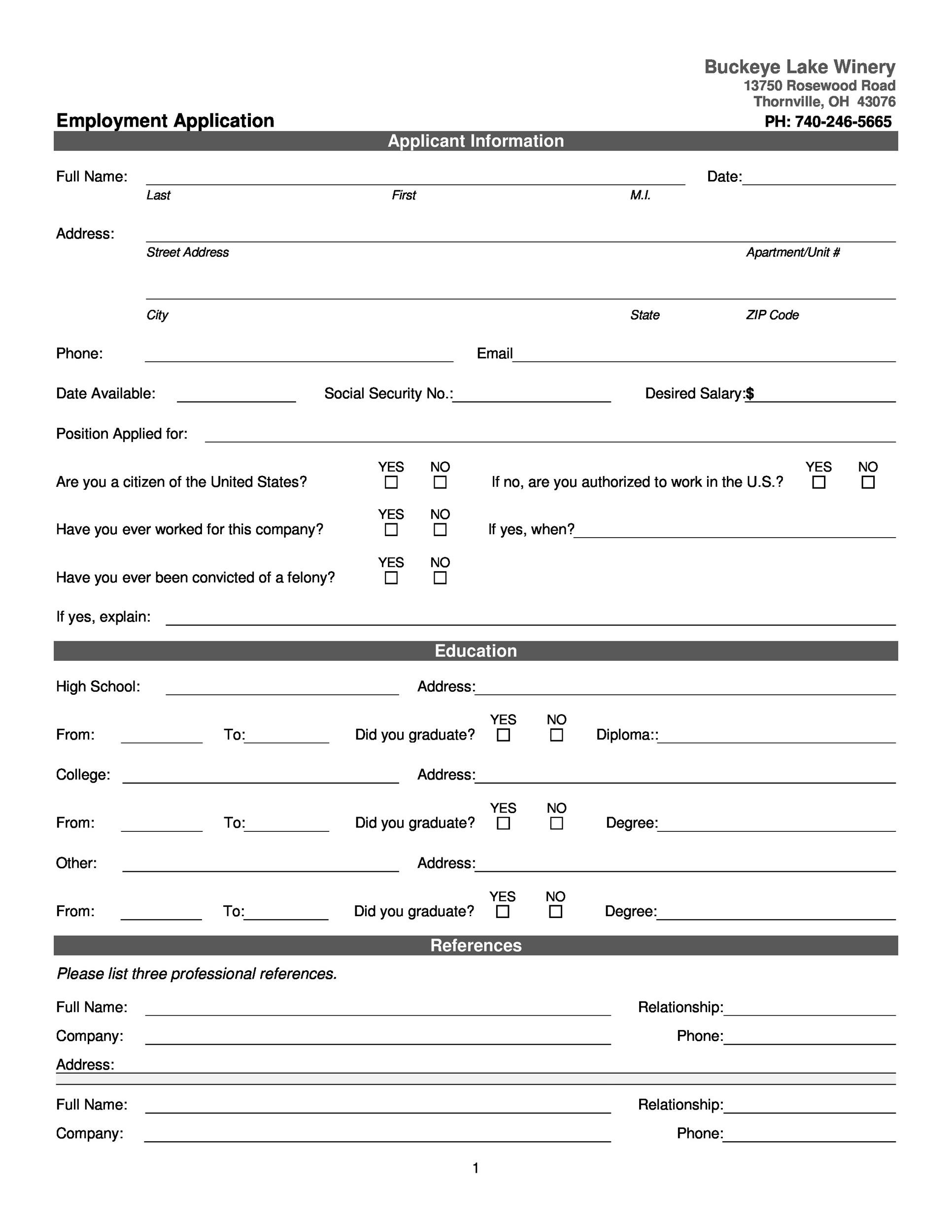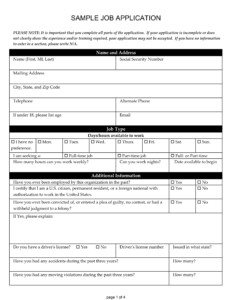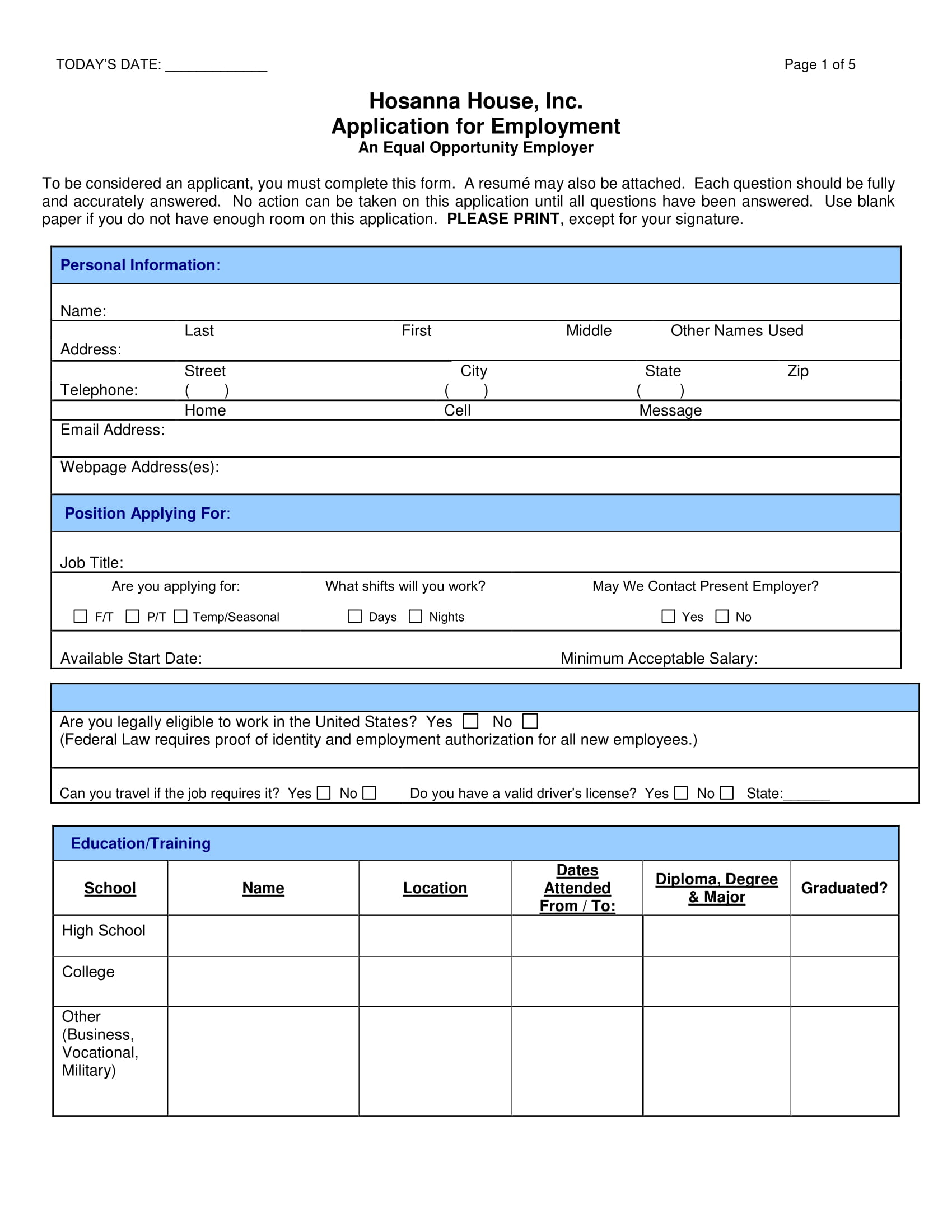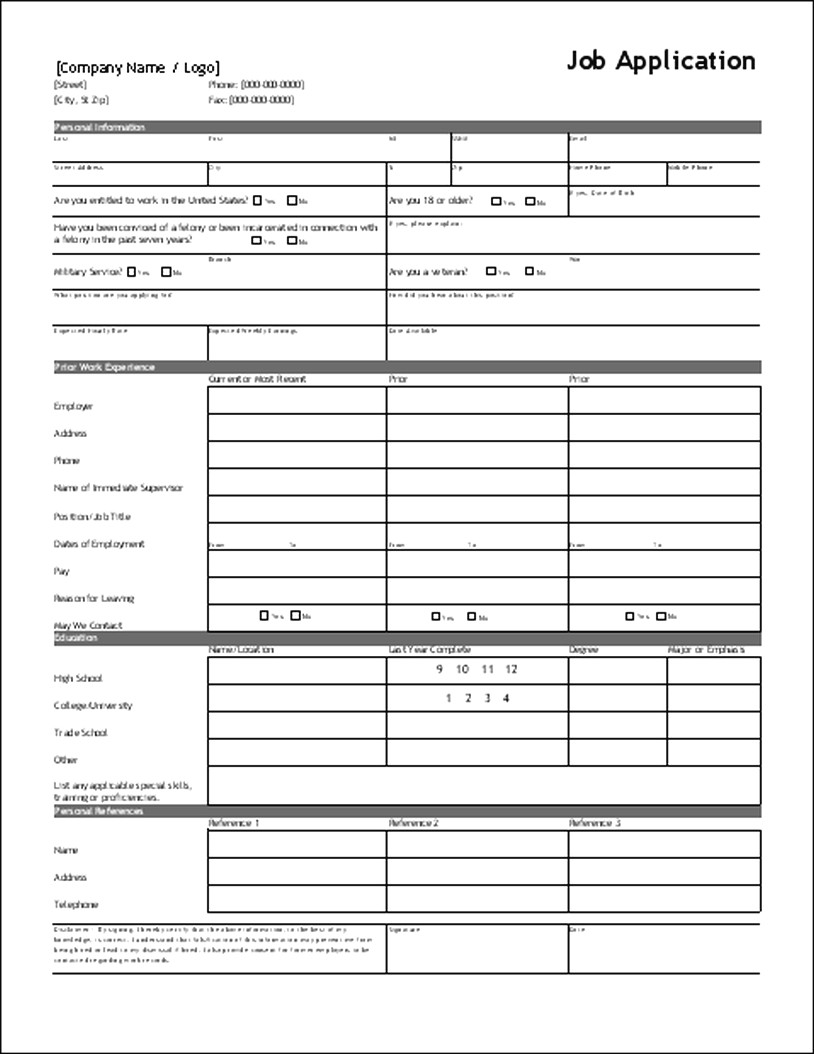Essential Paperwork for Job Applications: What You Need

In today's competitive job market, having a polished application is crucial. While it's essential to customize your resume and cover letter for each opportunity, remember that other documents are just as important. This guide aims to inform job seekers about the essential paperwork needed for job applications.
The Basics: Resume and Cover Letter

Your resume is often the first document employers review. It should:
- Be tailored to the specific job.
- Highlight relevant skills, experiences, and achievements.
- Use action verbs like “developed”, “improved”, “managed”.
- Include keywords from the job description for better SEO.
Similarly, a well-written cover letter provides context to your resume:
- Explain your interest in the job and the company.
- Illustrate why you are the perfect fit.
- Showcase your personality and enthusiasm.
📝 Note: Ensure your cover letter isn’t a generic copy-paste. Personalize it by referencing details from the job description.
Application Form

Many organizations require an application form in addition to your resume. This can include:
- Personal Information (Name, Contact Details).
- Work History.
- Education.
- References.
Completing an application form carefully ensures all pertinent details are recorded, which might not be captured in a resume.
Employment History

Employers often need a detailed account of your work history, which might extend beyond what your resume captures:
- Complete employment dates.
- Accurate job titles and descriptions.
- Explanation for any employment gaps.
Maintain an up-to-date record of your work history, including any freelancing or contract work.
Certifications and Licenses

For certain industries, certifications or licenses are mandatory:
- List each certification or license with the issuing body, date of certification, and expiry date.
- Keep copies of the documents ready for submission.
- Examples include nursing licenses, engineering certifications, teaching credentials.
References

Employers often request references to gain insight into your work ethic and professionalism:
- Include at least three professional references.
- Provide their name, position, relationship to you, and contact information.
- Ensure you’ve sought permission from each reference before listing them.
📞 Note: When you list someone as a reference, it’s polite to inform them they might be contacted.
Transcripts or Diplomas

For academic roles or early career job seekers, transcripts or diplomas are key:
- Have official or unofficial copies on hand.
- Transcripts should include your GPA if it’s strong.
Work Samples and Portfolio

If applicable, your work samples or portfolio can showcase your abilities:
- Select pieces that demonstrate your skills, diversity, and problem-solving abilities.
- Include written or design projects, coding examples, etc.
- Make sure they are well-presented and relevant to the position.
Here’s a simple table outlining what each piece of your portfolio should include:
| Portfolio Piece | Content | Focus |
|---|---|---|
| Writing Sample | An article or research paper | Writing skill, research capabilities, and communication |
| Design Project | Mockup, logo, or complete branding | Creativity, design theory, project management |
| Coding Project | A functional piece of code or a small application | Technical skills, logic, and problem-solving |

Final Thoughts

Gathering the essential paperwork for job applications involves organizing your resume, crafting a personalized cover letter, completing application forms, detailing your employment history, and having certifications, references, educational documents, and work samples ready. This comprehensive approach not only aids in presenting your candidacy effectively but also demonstrates your professionalism. Keep your documents updated and tailored to each job opportunity, and ensure that all references are aware they might be contacted. By preparing meticulously, you can navigate the job application process with confidence, making a lasting impression on potential employers. Remember, preparation is key to success in the job market.
Do I need to list every job on my resume?

+
While it’s important to be comprehensive, focus on relevant jobs. Include key roles that illustrate your skills, experiences, and career progression. If space is limited, older jobs might be omitted, but be prepared to discuss them during an interview if necessary.
Should I include my GPA on my resume?

+
Include your GPA if it’s strong and relevant, especially for recent graduates or academic-related positions. If your GPA isn’t competitive, consider leaving it off or mentioning it if asked during the interview process.
How can I ensure my references are contactable?

+
Always inform your references that they might be contacted and confirm their contact details are up-to-date. It’s also courteous to give them a heads-up on the jobs you’re applying for, so they can prepare for any potential calls or emails from employers.